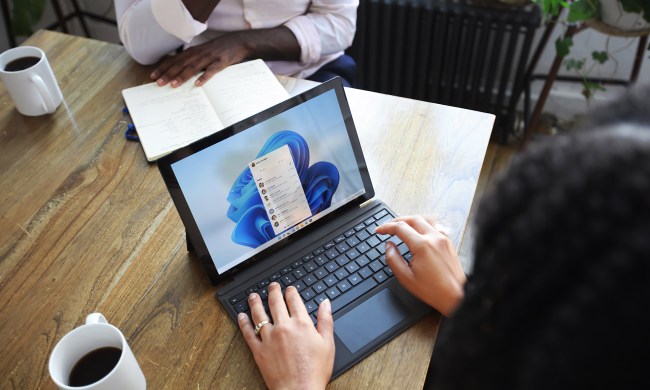The centerpiece of Microsoft’s upcoming October 2 press event will be the potential launch of the mysterious dual-screen project Centaurus. But the device isn’t what I’m most curious to see — it’s Windows Core OS, the rumored software interface it runs on.
It’s a new operating system that is meant to be modular, one that’s adaptable for different devices and forms, all fully customizable through downloadable “shells.”
We’ve seen it used on devices like Surface Hub 2 or the HoloLens 2, but it has never been explained in its full context. A new concept by UX designer Niels Laute, is perhaps the best guess I’ve seen at just how the Core OS system could play out.
The concept is based on the idea that these “shells” could be created and distributed by third-party companies. The concept’s designer calls them “productivity shells” — fully customizable setups that can be built to play into the particular needs of a certain business or task.
Laute uses three specific examples of how Windows Core OS could play out in an enterprise situation: A front desk, a restaurant, and an airline. Each of these businesses has varying needs, but also access to different devices.
Take the airline, for example. This particular shell doesn’t use a traditional desktop, as you can imagine a cabin crew on a plane might not. According to Laute, it instead uses Microsoft tools like the Microsoft Graph and Cortana to get a view of important information at a glance.
The idea of these connected interfaces might sound a bit outlandish at first blush. Would Microsoft really let developers release their own shells that can be installed onto devices to completely change how they function?
Well, consider what the designer Laute compares it to: Office 365. It’s one of Microsoft’s most important services, especially in the enterprise world. Laute makes the point that the service already lets companies customize elements of it such as login screens and the navigation bar.
Full-on interface shells would be a big evolution of that approach, but it’s one that would help the company win back some of the ground its lost to iPads in this arena.


